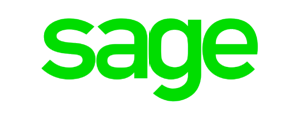Direct Debit has been around for quite a while. Businesses have been taking payments using the system in some capacity since 1968 and it’s showing no signs of slowing down, with the latest figures from Bacs showing that Direct Debit payment transactions grew by 4.9% in 2016 to 6.22 billion.
Of course, in the 1960’s, Direct Debit was a cumbersome paper-based system that took a little too long to get started and was tough to manage. Fast-forward to the present – with the advent of Cloud-Based Accounting software – setting up a Direct Debit has never been more simple, efficient and easy to control.
Despite this, there are always going to be misconceptions and fallacies that crop up along the way, so with this blog, we’ll debunk some of the most common myths around one of the UK’s most popular methods of payment.
Let’s start with an easy one.
Myth 1 – Direct Debit is Difficult to Set Up
 There was definitely a time when Direct Debit set up was a more complicated prospect for a business owner. The process was admin-heavy and needed face to face visits or communication by post in order to get the paperwork signed.
There was definitely a time when Direct Debit set up was a more complicated prospect for a business owner. The process was admin-heavy and needed face to face visits or communication by post in order to get the paperwork signed.
However, these days Direct Debit is a largely paperless and automated system. This eliminates the hassle by using online solutions and processes to manage your payments for you. Now, because of the availability of cloud-based computing software and Direct Debit solutions such as FastPay, keeping track of payments doesn’t need to be difficult or slow anymore.
FastPays’ Managed Direct Debit and Direct Debit Bureau services offer a third party solution to outsource your payments and allow customers to sign up online, both quickly and simply. This helps to reduce admin time and means there are no piles of paperwork cluttering the office and getting lost.
Myth 2 – Direct Debit is Inflexible
This myth originates from the misconception that setting up a Direct Debit is similar to setting up a standing order. The two processes are often confused because both involve a bank to bank transaction.
Unlike standing orders, which are fixed and cannot be adjusted easily, Direct Debit is incredibly flexible. A customer’s billing date and collection amount are fully adjustable in line with their business needs. This means that there is more freedom for both debtor and creditor in managing cash flow and regulating Direct Debit payments.
When you become a FastPay customer, your business transactions will be both flexible and informative, as our pro-active reporting system will inform you of any bounced or cancelled Direct Debits in real time as they occur. This allows you to adjust and restructure them on the fly according to any agreements between you and your clients.
Myth 3 – Direct Debit is Expensive
Many businesses are under the wrong impression that expensive software is needed to collect Direct Debits. That is simply not true.
In fact, an easy way to avoid these costs is to manage your payments with a third party provider such as FastPay, as you don’t have to purchase any in-house software, and you won’t have to pay for installation or upgrades.
For example, the FastPay Direct Debit Bureau Service charges are from as little as 3p per transaction and cuts out the need for dedicated staff to chase payments, along with the cost of an in-house system to manage them.
Direct Debit also requires little maintenance outside of payment tracking and monitoring, meaning all those extra hours can be invested back into the business.
Myth 4 – Direct Debit is Unsafe
 Possibly the biggest untruth in this list is the misconception that Direct Debit is in some way unsafe for a business. In reality, in order to offer Direct Debit payment as a service, a provider must go through a rigorous vetting process. This includes being constantly monitored by the banking industry on the efficiency and security of their Direct Debit services to minimise the risk of fraud or errors in payment.
Possibly the biggest untruth in this list is the misconception that Direct Debit is in some way unsafe for a business. In reality, in order to offer Direct Debit payment as a service, a provider must go through a rigorous vetting process. This includes being constantly monitored by the banking industry on the efficiency and security of their Direct Debit services to minimise the risk of fraud or errors in payment.
Under the Direct Debit Guarantee, there are certain safeguards in place to protect customers, including:
- Customers must be notified up to ten days in advance of any changes concerning the amount or the payment date.
- Customers will receive immediate refunds from the bank in the case of an error. This includes payments taken on a date other than the due date and withdrawals of a different amount than originally agreed.
- Direct Debits can be cancelled at any time before the payment is due.
- Your business is also protected in the event of a mistake – customers receiving an incorrect refund must pay this back in full.
You can find a much more detailed explanation of the Direct Debit guarantee here.
Myth 5 – Direct Debit is only for Big Businesses
In the distant past, you could only access Direct Debit directly, through your bank. Direct Debit set up was slow and required significant effort and investment by the person or company applying – in both setup and ongoing management.
Considering all the extra admin work that Direct Debit used to be in the past, it’s not difficult to see why this myth exists. All this work needed time, funds and staff to manage; so small/medium sized businesses without high transaction volumes did not see it as a cost-effective solution.
In the present, however, there is a much simpler way to take advantage of Direct Debit – via an external Direct Debit Bureau like FastPay, who will manage the process on your behalf.
Direct Debit is more about the cash flow of a business than its size. Late and missed payments remain a major issue for companies that take payments on a regular basis. Direct Debit helps them to collect the money when it suits them and the customer, whilst considerably reducing back office administration.
Myth 6 – Direct Debit is Time Consuming
 Another popular misconception is that all customers setting up a Direct Debit have to sign a paper Direct Debit instruction, meaning that businesses have to arrange a face-to-face meeting or wait for the instruction to arrive in the post.
Another popular misconception is that all customers setting up a Direct Debit have to sign a paper Direct Debit instruction, meaning that businesses have to arrange a face-to-face meeting or wait for the instruction to arrive in the post.
Of course, the truth is that paperless Direct Debit instructions are a very common sign-up method – and are much quicker than a paper approach. Instructions can be completed via the telephone, online or face-to-face. Because paperless Direct Debit Instructions are quicker, they can help reduce turnaround time, improve accuracy and increase sign-up rates for customers.
A Payment Method for the 21st Century
Now we have busted the top 6 myths about setting up a Direct Debit, we’re certain you’ll consider asking for a quote to use FastPay’s Direct Debit service and join the long list of other businesses we have helped on the journey to positive cash flow.
FastPay is one of the UK’s leading direct debit companies.












